
42Uploads
5k+Views
538Downloads
Biology

Factors that affect photosynthesis
Factors that affect photosynthesis PowerPoint that links with the graphs found in Factors that affect photosynthesis Word doc, mindmap starter/plenary activity (replace the image attached to the speech bubble with similar), suitable waterweed photosynthesis questions and mark schemes and YouTube hyperlink.

Photosynthesis
Photosynthesis PowerPoint that starts with a word jumble, covers appropriate notes and YouTube links.
Question sheets with mark schemes are also appropriate to the lesson.

Transport in plants
Transport in plants PowerPoint that links with the transport in plants knowledge organiser and includes appropriate notes and YouTube links.
The transport in plants sheet includes an extension activity.

Plant organisation
Plant organisation PowerPoint that links with the animal and plant cell structures work sheet, plant leaf organisation knowledge organiser and You Say We Pay plenary activity at the end.
The animal and plant cell sheet includes an extension activity and a QR code that will take students to BBC Bitesize for revision and research.
Bundle

Cell types, structure, specialisation and microscopes
Knowledge organisers that are designed to be printed A3 size to cover eukarotes and prokaryotes, cell specialisations and light microscopes. Mitosis and cell cycle to be printed A4 size. They include GCSE questions and revision links.

Enzymes and Bile
Knowledge organiser designed to be printed in A3, however smaller scales (A4) can be used. The resource is constructed to be used for class work, independent/group learning through the sign-pointed references to textbooks, revision guides and web sites. The page numbers stated in each box can be easily adjusted to other reading/research materials.
The scaffolded work starts with enzymes, lock and key theory, 3 main enzymes (substrates and products), the action of bile (emulsification) and ends with past paper GCSE questions.
Embedded QR codes take the student to appropriate revision sites (YouTube and BBC Bitesize).
Mark scheme is included for all answers.

Hormones in human reproduction
Knowledge organiser designed to be printed in A3 and can be used in conjunction with textbooks.
The scaffolded work starts with labelling reproductive organs, secondary sexual characteristic, menstrual cycle hormones, contraception and ends with past paper GCSE questions.
Embedded QR codes to take the student to appropriate revision sites (YouTube and BBC Bitesize).

Human nervous system
Knowledge organiser designed to be printed in A3, however smaller scales (A4) can be used. The resource is constructed to be used for class work, independent/group learning through the sign-pointed references to textbooks, revision guides and web sites. The page numbers stated in each box can be easily adjusted to other reading/research materials.
The scaffolded work starts with coordination, 3 types of neurones, reflex arcs, synapses and ends with past paper GCSE questions.
Embedded QR codes to take the student to appropriate revision sites (YouTube and BBC Bitesize).
Mark scheme is included for all answers.

Human defence systems
Knowledge organiser designed to be printed in A3, however smaller scales can be used. The resource is constructed to be used for class work, independent/group learning through the sign-pointed references to textbooks, revision guides and web sites. The page numbers stated in each box can be easily adjusted to other reading/research materials.
The scaffolded work starts with how bodies prevent entry of pathogens (first line of defence), role of white blood cells (second line of defence) and ends with past paper GCSE questions.
Embedded QR codes to take the student to appropriate revision sites (YouTube and BBC Bitesize).
Mark scheme is included for all answers.
SWF file demonstrates the role of white blood cells producing antibodies and phagocytosis.

Immune response and Vaccinations
Knowledge organiser designed to be printed in A3, however smaller scales (A4) can be used. The resource is constructed to be used for class work, independent/group learning through the sign-pointed references to textbooks, revision guides and web sites. The page numbers stated in each box can be easily adjusted to other reading/research materials.
The scaffolded work starts with antigens, herd effect, primary and secondary immune responses, vaccinations and ends with past paper GCSE questions.
Embedded QR codes to take the student to appropriate revision sites (YouTube and BBC Bitesize).
Mark scheme is included for all answers.

Translocation and Transpiration
Knowledge organiser designed to be printed in A3, however smaller scales can be used. The resource is constructed to be used for class work, independent/group learning through the sign-pointed references to textbooks, revision guides and web sites. The page numbers stated in each box can be easily adjusted to other reading/research materials.
The scaffolded work starts with how plants use water, transpiration stream, factors affecting transpiration, potometers, guards cells and ends with past paper GCSE questions.
Embedded QR codes take the student to appropriate revision sites (YouTube and BBC Bitesize).

Plant tissues and organs
Knowledge organiser designed to be printed in A3, however smaller scales (A4) can be used. The resource is constructed to be used for class work, independent/group learning through the sign-pointed references to textbooks, revision guides and web sites. The page numbers stated in each box can be easily adjusted to other reading/research materials.
The scaffolded work starts with simple parts of flowering plants, structure of a leaf, structure of roots/stems, vascular bundles, root hair cells, xylem and phloem tissues and ends with past paper GCSE questions.
Embedded QR codes take the student to appropriate revision sites (YouTube and BBC Bitesize).
Mark scheme is included for all answers.

Blood and Blood vessels
Knowledge organiser designed to be printed in A3 and can be used in conjunction with textbooks.
The scaffolded work starts with the four parts to the blood, 3 blood vessels and ends with past paper GCSE questions.

Enzyme RPA
Knowledge organiser designed to be printed in A3 and can be used in conjunction with textbooks.
The scaffolded work starts with RPA method, variables, iodine test for starch, gathering results ends with past paper GCSE questions.

Human Digestive system
Knowledge organiser designed to be printed in A3 and can be used in conjunction with textbooks.
The scaffolded work starts introduction to digestion, the parts of the digestive system, peristalsis, introduction to enzymes and ends with past paper GCSE questions.
Embedded QR codes to take the student to appropriate revision sites (YouTube and BBC Bitesize).

RPA Osmosis [movement of water in plant tissues]
Knowledge organiser designed to be printed in A3 and can be used in conjunction with textbooks.
The scaffolded work starts with RPA method, results gathering, conclusion and ends with past paper GCSE questions.

Cell Specialisation
Knowledge organiser designed to be printed in A3 and can be used in conjunction with textbooks.
The scaffolded work starts with differentiation and cell specialisation. The main 6 cell specialised cells (sperm, neurone, muscle, root hair cell, xylem and phloem) and ends with past paper GCSE questions.
Embedded QR codes to take the student to appropriate revision sites (YouTube and BBC Bitesize).

Cells types and organelle function
Knowledge organiser designed to be printed in A3 and can be used in conjunction with textbooks.
The scaffolded work starts with cell types (animal, plant then bacteria), cell structure functions and ends with past paper GCSE questions.

Light Microscopy
Knowledge organiser designed to be printed in A3 and can be used in conjunction with textbooks.
The scaffolded work starts with the structure of light microscopes, magnification calculations, the order of magnitude and ends with past paper GCSE questions.
Embedded QR codes to take the student to appropriate revision sites (YouTube and BBC Bitesize).

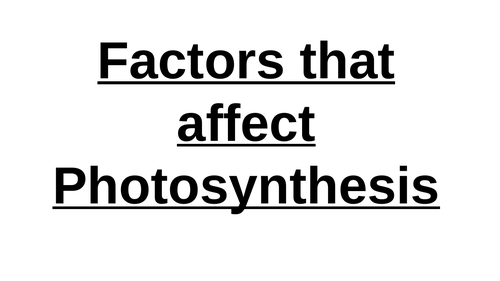
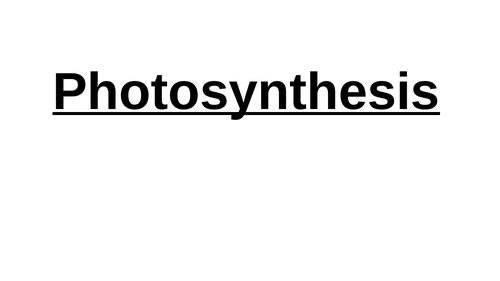
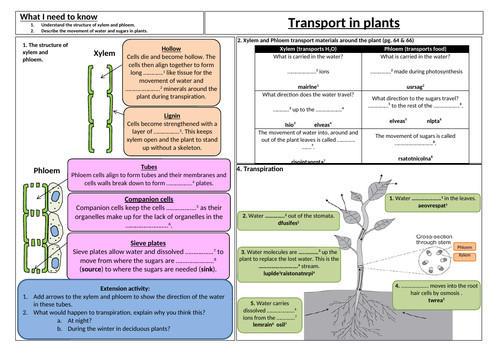
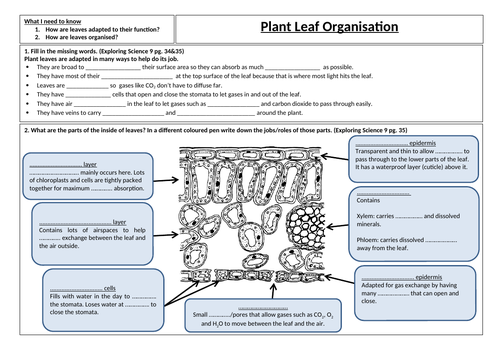


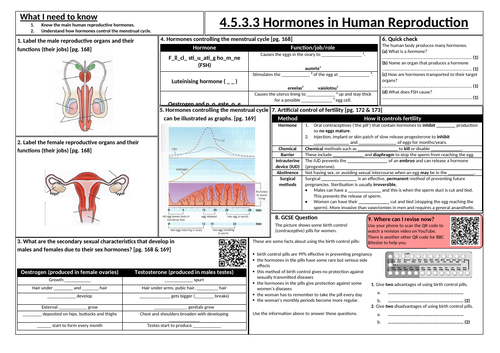
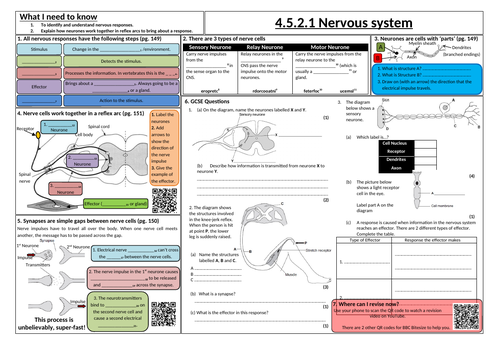
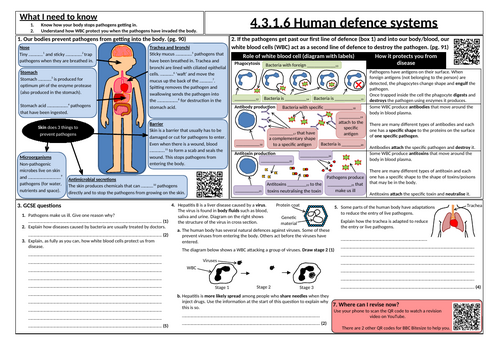
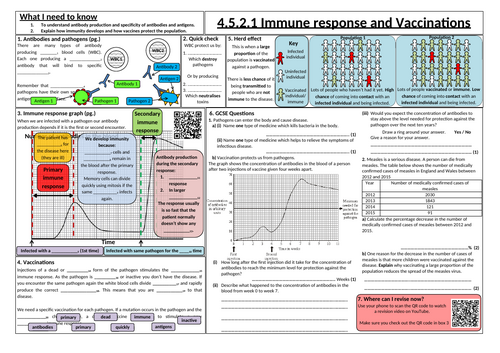
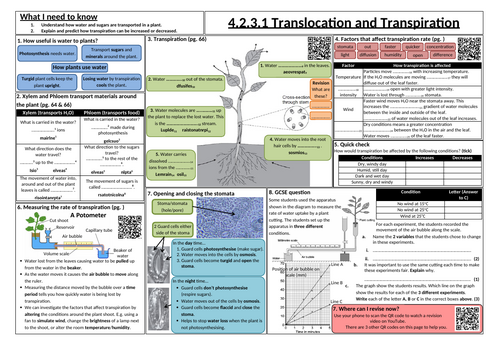
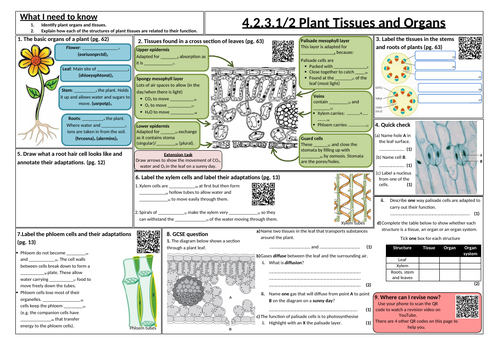
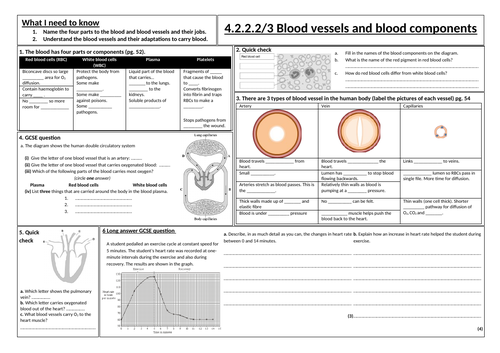
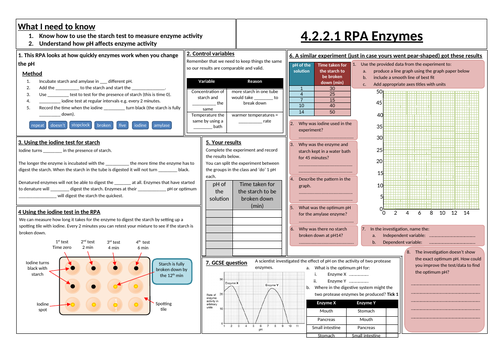
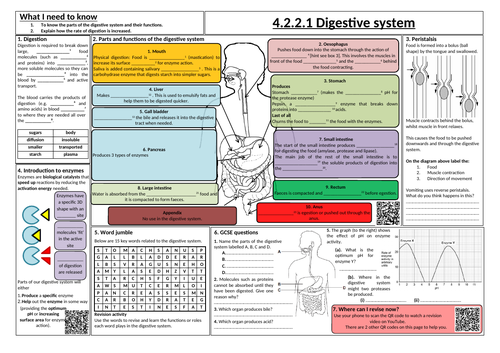
![RPA Osmosis [movement of water in plant tissues]](https://dryuc24b85zbr.cloudfront.net/tes/resources/12621374/image?width=500&height=500&version=1641984869963)


